Another summer has come and gone, and while most academic institutions tend to quiet down for the season, the energy at the Coastal Studies Institute is often at its highest.
In addition to the nine REU students and a handful of others participating in internships or independent studies, CSI saw 107 students walk through its doors for summer camp, and some of those campers even attended multiple sessions. The 2024 lineup included eight weeks of fun, educational instruction and field trips spanning four different STEAM-oriented themes.
Sustainable Seas, an oceanography and coastal engineering-focused camp, was offered during the first and fifth weeks. Sustainable Seas participants built model houses to withstand “hurricane force” winds originating from a leaf-blower moved closer and closer for each Category; created shoreline protective measures for an erosion simulation game; examined the complex nature of human-ecosystem dynamics in fisheries; and explored how technology could benefit coastal research by flying toy drones on different missions. The campers also learned about advances in renewable energy, building model wind turbines and wave energy converters.
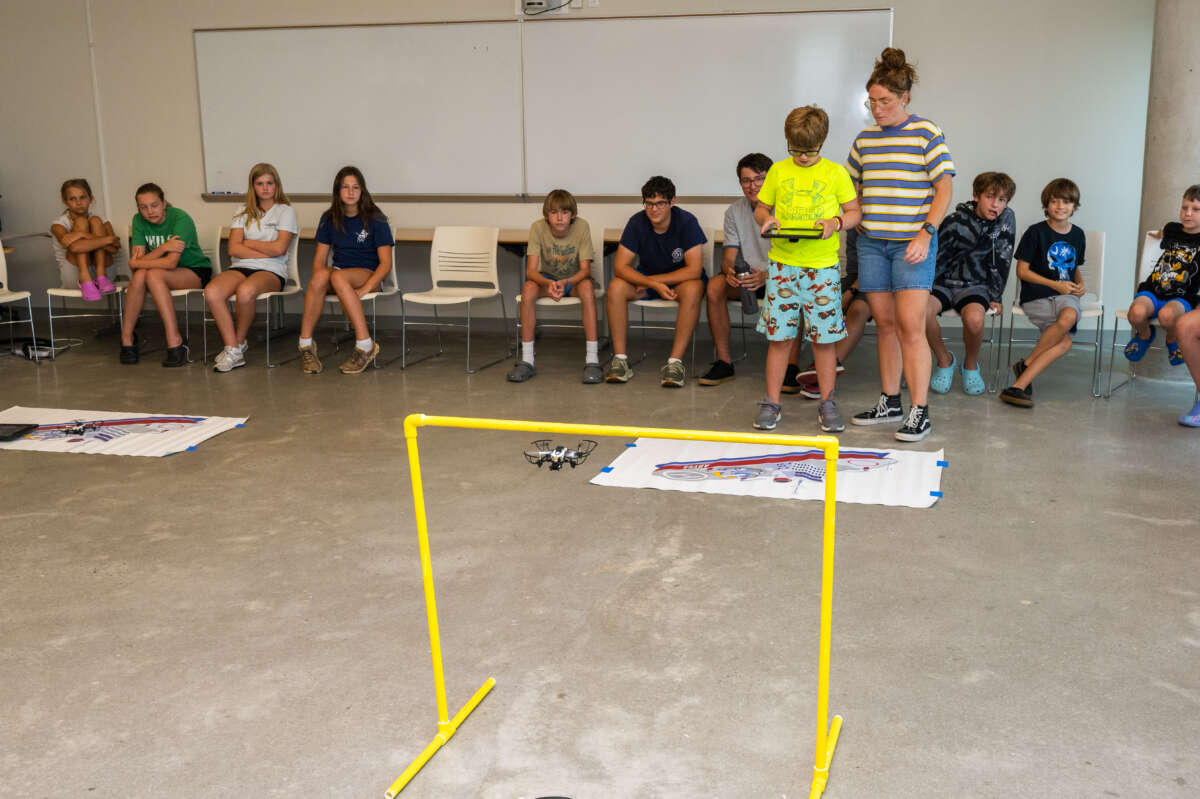
Campers who attended either the second or sixth weeks participated in the Shapes in Science camps. The theme of this camp was centered around the integration of art, science, and the environment. Field trips to Jockey’s Ridge State Park, the grounds of Bodie Island Lighthouse, and the Nags Head Woods Preserve brought awareness to the many different Outer Banks ecosystems and the things one might find in each. Wherever they went, the students were encouraged to capture the unique variables of each site through photography. For each research or environmental aspect the campers considered in the lab or classroom, there was also an accompanying art project. After learning about Gulf Stream ecology, the campers created a mixed-media mural to communicate the complex food web among Gulf Stream organisms. After thinking about both the ecological and economic benefits of the coastal ocean environment, the campers made wave-inspired sculptures. To end the week, the students curated a gallery for their family and friends to highlight all they had learned that week.
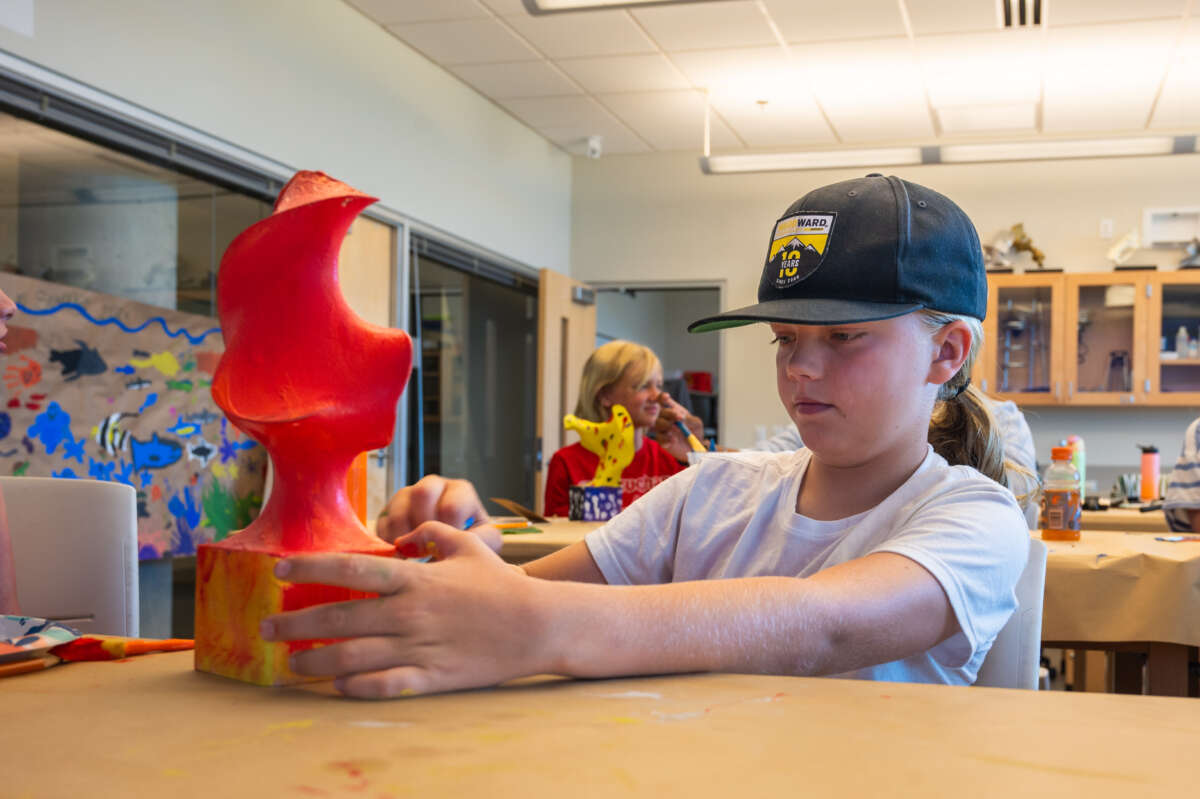
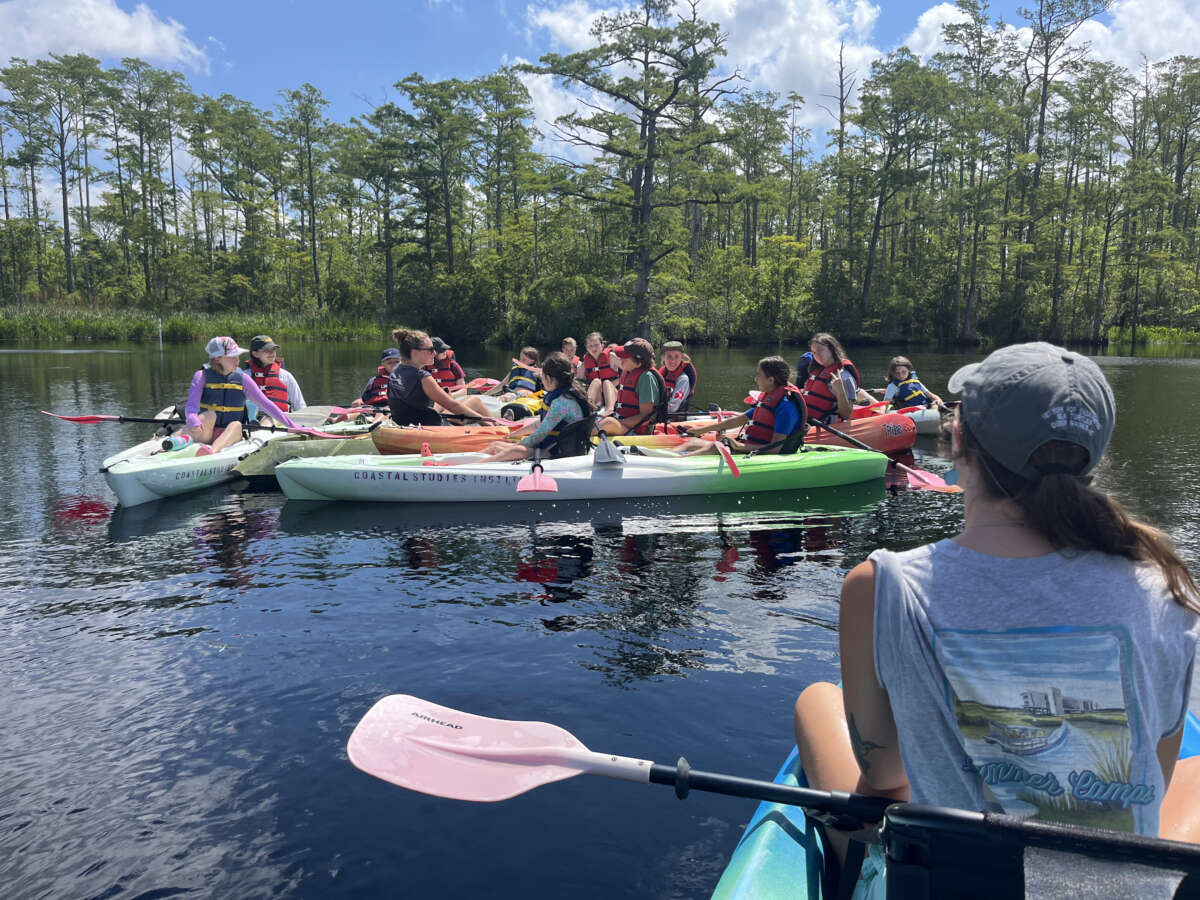
During weeks three and seven, participants enjoyed Coastal Kingdoms, a camp that focuses on marine and coastal biology and ecology. Starting with some of the smallest organisms such as plankton and oysters then transitioning to fish, and even larger creatures like marine mammals and bears, the students learned all about the critters that make up the local fresh and saltwater environments of the Outer Banks. By collecting oysters from bags that hung off the CSI docks, the campers saw first-hand how oysters could provide habitat for a variety of organisms including mud crabs, worms, blennies, gobies, eels, and other juvenile fish. During a half-day program led by the North Carolina Coastal Federation, they planted saltmarsh cordgrass at Jockey’s Ridge State Park to assist with shoreline restoration efforts. The week ended with a trip to Alligator River National Wildlife Refuge to explore the pocosin environment via kayaks.
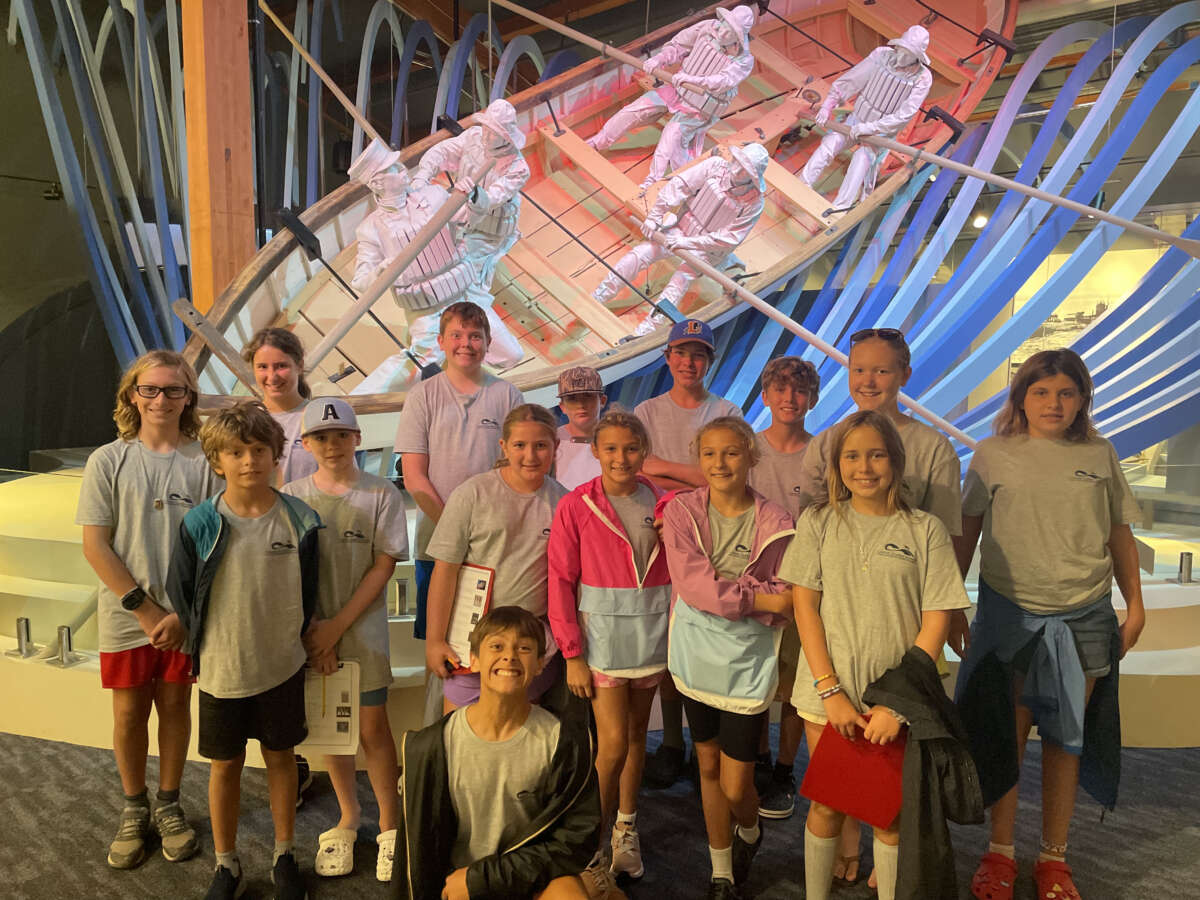
Finally, during the fourth and final weeks, Legends of the Atlantic was on the schedule. This camp, focused on maritime archeology, gave students a glimpse into the world of diving and the shipwrecks that rest just off the Outer Banks. Campers in these sessions visited the remains of a few shipwrecks on land, chatted with experts in the field, and learned what it takes to document a shipwreck by hand and gather clues to identify each site correctly. They visited Harrison Boatworks, a local boat builder in Wanchese, to see boat building firsthand and even received a behind-the-scenes tour of the Graveyard of the Atlantic Museum’s collections room!
“It’s so much fun to see the campers get excited about science and enjoy our local, natural environments. Our camps provide a great mix of education and fun, all while highlighting the many marine and coastal-related career paths the Outer Banks offers,” says camp director Parker Murphy. “We really enjoy offering programs that have something for everyone, and we are already looking forward to the 2025 season!”
While the next round of camps is still almost a year away, the Education and Outreach staff will spend much of the fall and winter planning new and exciting things for next summer. As always, registration will open on March 1.
For the most up-to-date camp information, visit the CSI Summer Camp webpage; follow CSI on Facebook, Instagram, and X; and subscribe to CSI’s seasonal newsletter.
The preceding story first appeared in the Fall 2024 edition of CoastLines.

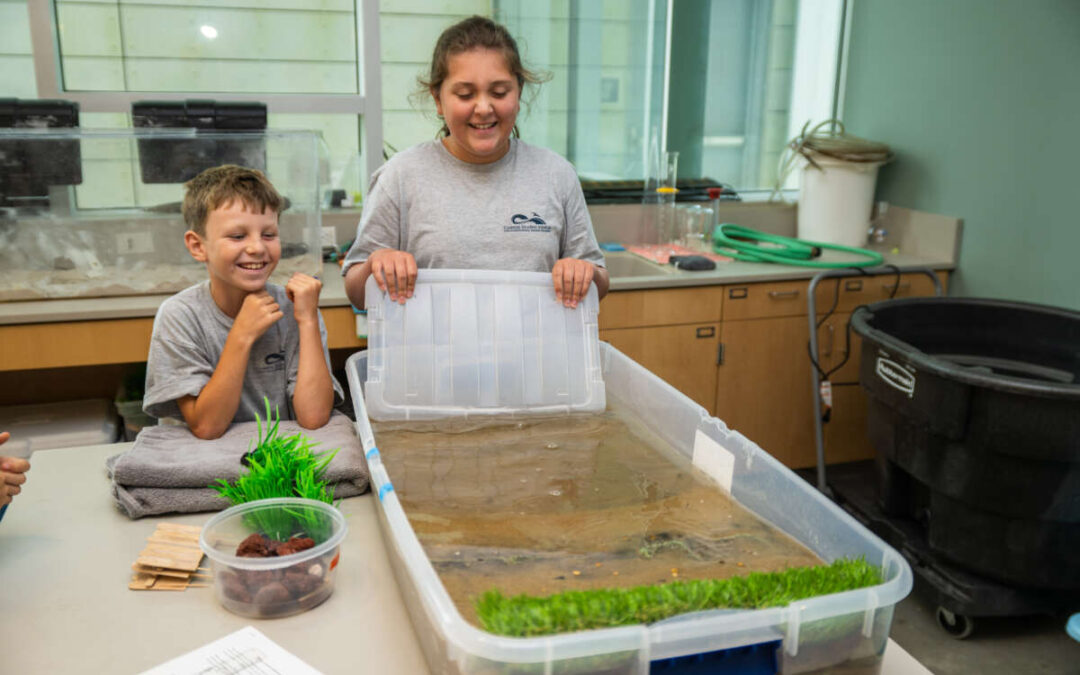

 Based at the Coastal Studies Institute (CSI), the North Carolina Renewable Ocean Energy Program (NCROEP) advances inter-disciplinary marine energy solutions across UNC System partner colleges of engineering at NC State University, UNC Charlotte, and NC A&T University. Click on the links below for more information.
Based at the Coastal Studies Institute (CSI), the North Carolina Renewable Ocean Energy Program (NCROEP) advances inter-disciplinary marine energy solutions across UNC System partner colleges of engineering at NC State University, UNC Charlotte, and NC A&T University. Click on the links below for more information. ECU's Integrated Coastal Programs (ECU ICP) is a leader in coastal and marine research, education, and engagement. ECU ICP includes the Coastal Studies Institute, ECU's Department of Coastal Studies, and ECU Diving and Water Safety.
ECU's Integrated Coastal Programs (ECU ICP) is a leader in coastal and marine research, education, and engagement. ECU ICP includes the Coastal Studies Institute, ECU's Department of Coastal Studies, and ECU Diving and Water Safety. The ECU Outer Banks campus is home to the Coastal Studies Institute.
The ECU Outer Banks campus is home to the Coastal Studies Institute.

